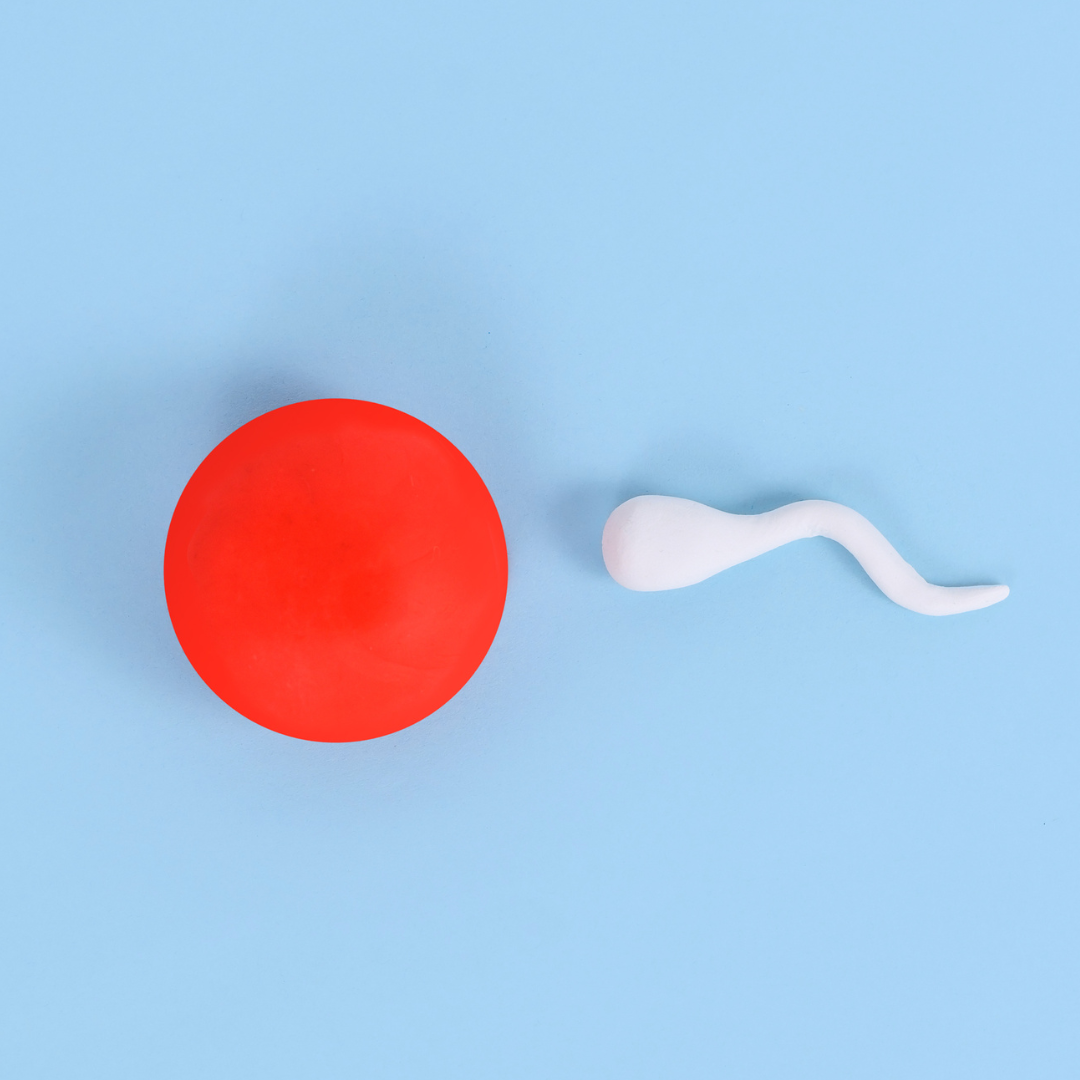
How I handled male infertility and became a father by Shaun Greenaway
Hi. I’m Shaun. I’m a man. I’m infertile. That’s not something you hear very often, is it? That’s exactly why I’m here. Struggling with fertility is tough for anyone who experiences it. There’s a lot of undue shame and secrecy about infertility in general, but when the complications stem from the male side, that shame and secrecy increases exponentially – and that’s why I decided to share my story.

My journey through infertility: Shema Tariq’s story
One of our Ambassadors new to the stage is Shema Tariq. We were delighted to speak to Shema recently and find out a little more about her and her fertility story.

Is egg freezing a ‘false promise’?
This month, Conservative MP Miriam Cates raised concerns that women are being exploited by large corporations who offer them money to freeze their eggs. This is to put off having children to a later age, presumably to concentrate on their careers should they want to.
The MP, herself a mother-of-three, said she was concerned that women would be “falsely reassured” into deciding to delay pregnancy until later life. Her main concerns were “if you freeze your eggs after the age of 35 or so, they are not good quality enough to likely result in a later pregnancy”.
But just how true is this? Well, if there’s one thing we are aiming for here at The Fertility Show, it’s to help you gain an understanding about your future fertility. With this in mind, it’s unsurprising there’s been a significant interest in egg freezing over the last few years.

Understanding Adoption: Insights from Adoptive Dad Andrew Merriman
In a heartfelt discussion on Let's All Talk Fertility last week, Andrew Merriman - one half of the adoptive dad duo known as “The Merrimans” on Instagram - shared with us his journey through the adoption process and the joys and challenges that come with it.

Meet the Clinic: IVF London
IVF London was formed in 2018, with the aim of providing comprehensive support and empowering patients in their fertility journey. In my experience, patients don’t want to feel as if they are on a "conveyor belt” for treatment. IVF London aims to change that, by offering a boutique clinic experience. It’s a small clinic in Borehamwood, located between Stanmore and Watford, with easy access to major road networks.

Meet the Clinic: Eugin Madrid
Eugin Clinic in Madrid is a part of the group of Eugin clinics around the world. “We are in 11 countries, with more than 70 centres, which gives us the opportunity to treat several couples with different problems and leads us to have a huge experience in treating patients with real proactive problems." explained Dr Alexandra

From heartache to hope: My IVF Story by Katy Jenkins
Our journey started in 2015 after a missed miscarriage at our 12-week scan two weeks before we got married. It completely turned our world upside down. We then continued trying, and I got pregnant again a year later, but unfortunately, early on I knew something was wrong and this time I was diagnosed with a blighted ovum miscarriage. After trying again for another two years and without success, we went to the doctors for help and after initial tests for both of us, we were referred to the fertility clinic, who then diagnosed us with unexplained infertility.

Navigating Mental Health and Infertility
This week on Let’s all Talk Fertility, I spoke to Psychotherapist Alejandra Losada Andrade. This conversation is important, as infertility is not just a physical challenge, it's a profound emotional journey that can deeply affect a person’s mental health. Alejandra Losada Andrade, an integrative psychotherapist specialising in infertility, gynecological, and antenatal issues, gave good insight into the psychological impact of infertility and offers guidance on coping strategies.


The Role of Fertility Testing and Tech
This week on our Let’s all Talk Fertility webinar channel, I spoke to Dr. Katharina Spies, the Medical Director of Vida Fertility Institute in Madrid, who shared with us her insights on fertility testing, new technologies, and how they can be leveraged to enhance the chances of conception.

Nutrition, Lifestyle, and how they can Impact Fertility
This week on ‘Let’s all Talk Fertility’ I caught up with Fertility Nutritionist Sandra Greenbank from The Fertility Nutrition Center. And when it comes to fertility, Sandra cannot stress enough the importance of nutrition. "It's paramount really because your baby is built from you, from what you've got in store," she says. The nutrients from your diet are the building blocks for your baby's development, and deficiencies can have significant consequences.

Understanding PCOS: Causes, Symptoms, and Treatment
Polycystic Ovary Syndrome, usually known as PCOS, is a common hormonal condition that affects the normal function of the ovaries in reproductive-age women. It is the most common endocrine disorder in females, affecting around 10% of the population, and is characterised by an excess of androgens (male hormones) produced by the ovaries. This can then lead to symptoms such as irregular periods, acne, weight gain, and hair loss. It is also one of the reasons a person may struggle to get pregnant naturally. So this week on “Let's all Talk Fertility” I spoke to Dr. Francisco Anaya from Vista Hermosa in Alicante, Spain about how to best treat it.

Understanding Donor Conception: Insights from a Fertility Specialist
For many, the path to parenthood may eventually move to donor conception. On Let’s all Talk Fertility this week, we spoke to Mr. Timothy Bracewell-Milnes from the Lister Fertility Clinic about the intricacies of this choice, and the process here in the UK.

Understanding Endometriosis and Its Impact on Fertility
This week on Let's all Talk Fertility, we spoke to Vidya Seshadri from CRGH about endometriosis. Endometriosis, or ”endo” as it’s also known as, is a fairly common condition that affects nearly 10% of women globally - that's an estimated 119 million women worldwide.

Donor Conception Overseas: A Path to Parenthood
Today, we want to talk about an important topic for those who are struggling with fertility issues: donor conception overseas. This is a path that many individuals and couples consider when they are unable to conceive naturally or with their own eggs or sperm. In this article, we will explore the process of donor conception overseas and provide some insights into what you can expect.

“Happy” New Year? Not always…
“Happy” New Year? Not always…As a new year begins, I am reminded of those years gone by when I was still in treatment, fearful of the year to come. So much hope and anticipation. Would this be the year of the baby?
We first started trying in 2013, at the start of our “Happy New Year”. Our year was not so happy, and it wasn’t long before we knew something was wrong. My periods had been painful and erratic for a long time, and we weren’t falling pregnant as quickly as my friends before me. But what to do about it?

Egg freezing uncovered
This year the Human Fertilisation and Embryology Authority (HEFA) reported a dramatic rise in the number of women freezing their eggs. It’s becoming one of the fastest growing fertility treatments across the UK. Some experts are attributing the rise to the pandemic, with Sarah Norcross, the director of the Progress Educational Trust, suggesting that “restrictions on socialising may have prompted some women to think more about their fertile window and decide to try to increase their reproductive choices.”

New guidelines, set out by the Human Fertilisation and Embryology Authority, explained…
This month the HFEA (the Human Fertilisation and Embryology Authority) set out proposals to modernise the regulation of fertility treatment and research involving human embryos.
The range of recommendations aims to update the UK’s 33-year-old fertility law, in a bid to ‘future-proof’ the industry and better reflect the significant changes in the fertility sector.

Men make up 50% of all fertility problems
Male fertility is important. That’s a fact. Men make up 50% of all fertility problems, and so it is important to know what checks to do and how to move forward in the best way. So this week on “Let’s all Talk Fertility” I spoke to Consultant Urologist and Lead Andrologist Professor Suks Minhas from Imperial College.
A lot of Suk’s work focuses on the causes and treatments for male infertility. Perfect for this webinar! Suks started by explaining just how much male fertility had declined over the last 50 years. The reason? We’re not entirely sure; “It maybe due to industrialisation, exposure to chemicals called endocrine disrupting chemicals” Professor Minhas told us.

“The quality is related to the age of the woman”
Marta told us that what we should really be focussing on is the age and quality of the eggs; “The quality is related to the age of the woman” Marta said. “If we have ten patients, all aged 36, and two of them have low ovarian reserve with an AMH level under one. We know those patients are more likely to have problems to get pregnant, but we cannot say the woman is infertile because we have reported natural pregnancies, even with a low AMH level.” In terms of quantity verses quality, Marta said she would prefer to get three eggs from a woman under 35 than nine eggs from a woman aged 42, because the age and quality of the eggs. Her advice being that, if you have a partner and know your reserve is low, to start trying to get pregnant naturally as soon as you can, to avoid fertility treatment.
